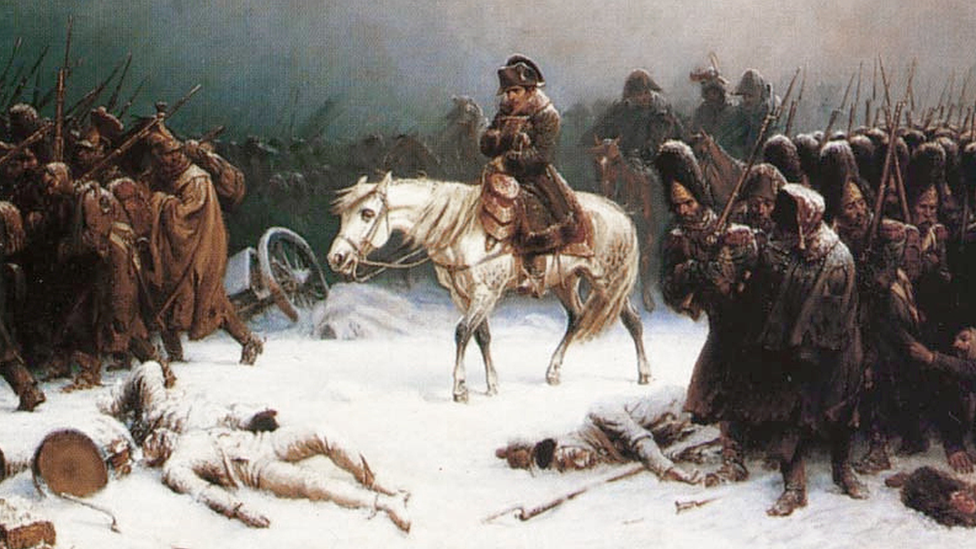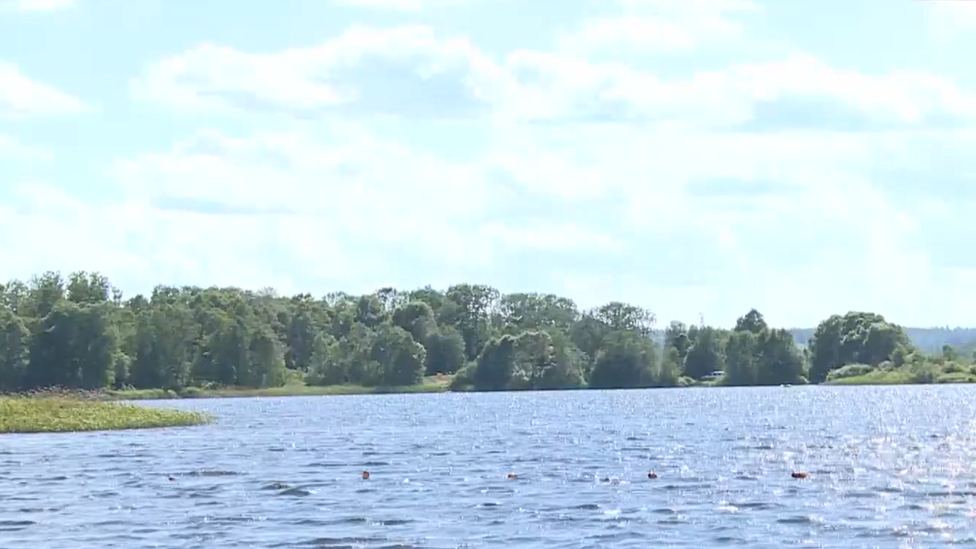Russia searches for Napoleon's gold
- Published

Only a fraction of Napoleon's Grande Armée made it back to France
A Russian historian has come up with a new theory about the legend that the French Emperor Napoleon hid wagonloads of stolen treasure during his disastrous retreat from Moscow in 1812.
Viacheslav Ryzhkov says treasure-hunters have been looking in the wrong place for 200 years, and told his local Rabochy Put, external newspaper that they should turn their attention to his home town of Rudnya, near the border with Belarus.
There have been persistent rumours for over 200 years that Napoleon's defeated Grande Armée made off with 80 tonnes of gold and other valuables that his soldiers had looted in Moscow, and buried it en route back to France when the going got too tough.
No trace of it has ever been found, but Philippe de Ségur, a member of Napoleon's staff, said the treasure was dumped in Lake Semlevo in Smolensk Region.
The site appeared credible, as the French army abandoned large amounts of arms and ammunition nearby. Various Russian officials, archaeologists and treasure-hunters have searched the lake since the 1830s, to no avail.
But other historians think General de Ségur's account was an attempt to divert attention from the treasure's real resting place, and have suggested the River Berezina in Belarus as a likely site. A Franco-Belarusian expedition in 2012 found nothing, external.
Viacheslav Ryzhkov's theory made it to the Russian national media in the New Year, attracted as it was by his colourful account of what might have happened.
'Decoy convoy'
He believes Napoleon sent a decoy convoy to trick Russian spies into thinking the loot was in Lake Semlevo, while the emperor himself and the real treasure slipped away south towards Rudnya and the nearby Lake Bolshaya Rutavech.
There he had a causeway built into the middle of the lake, and the gold and jewels carefully hidden in a mound of silt at the bottom.
In support of his theory, Mr Ryzhkov cites local accounts of the causeway, which gradually eroded after 1812, and a 1989 analysis that showed unusually high concentrations of silver ion in the water.
Reporters have seized in particular on his claim that "with the right equipment and specialists, the treasure can be salvaged from the mound on the lake bed".
You might also be interested in:
Not everyone is convinced. Professional treasure-hunter Vladimir Poryvayev is the Russia media's go-to expert on Napoleon's gold, having spent years on its trail, and his verdict is crushing.
"This is fiction. For centuries historians and archivists have documented Napoleon's daily progress on the Russian campaign... It is completely improbable that he could abandon his army and take off with a 'gold train' of 400 horse-drawn carts," he told the Moskovsky Komsomolets, external tabloid.
'Pure fantasy'
As for the lake causeway theory, Mr Poryvayev is equally dismissive: "It took a few hundred French cavalrymen just a matter of days to build an impressive dam in the freezing late autumn, then construct an 'underwater crypt' for tonnes of treasure? Did they have scuba gear? It's pure fantasy."
The treasure-hunter asked when Mr Ryzhkov was going to provide some documentary evidence for his theory beyond silver ion levels, given that Lake Semlevo also has high concentrations as a result of the natural soil conditions in Smolensk Region.
Another consideration is that Bolshaya Rutavech, along with five other lakes in the same system, have enjoyed special environmental protection, external since 1975. Motor boats are banned, and even anglers have to stick to the shore, so a major excavation of the lake bed would cause an uproar.
Vladimir Poryvayev says people come to him with novel ideas about the location of the gold several times a year, although not all the theories are as eye-catching as the Rudnya decoy.
But he isn't a complete sceptic, and told the paper that Napoleon's treasure might well exist. "When it's found, it will most likely be by accident," he concluded.

Bolshaya Rutavech keeps its secret for now
Reporting by Martin Morgan
Next story: Bulgaria rocked by Xmas hog roast row
Use #NewsfromElsewhere to stay up-to-date with our reports via Twitter, external.